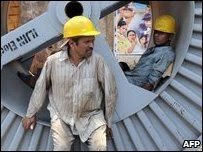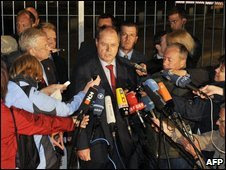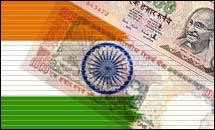
Car giant General Motors is expected to file for bankruptcy protection later on Monday, marking the biggest failure of an industrial company in US history.
The stricken firm had until 1 June to present a viable revival plan in return for emergency government funding.
Reports say a majority of bondholders have now agreed to a deal giving them at least a 10% stake in what is likely to emerge as a much smaller company.
President Barack Obama is due to give full details at a news conference.
The BBC's Jonathan Beale, in Detroit, says Mr Obama is expected to announce $30bn (£18.5bn) in new funding for GM.
GM's sales have been hit hard by the financial crisis and the firm has received $20bn in state aid.
In return for more cash the federal government is reported to be receiving a stake of 60% in a new, leaner company due to be re-launched within 90 days.
Senior executives at General Motors have been making final preparations for completely restructuring what was once the world's largest car company, under judicial supervision.
A Chapter 11 bankruptcy filing by GM would rank as the third largest bankruptcy in US history following Lehman Brothers' collapse and the failure of telecoms giant WorldCom.
European deal
The restructuring is likely to drastically change General Motors, with some 20,000 workers thought likely to lose their jobs.Our correspondent says long-established subsidiaries Pontiac, Saturn and Hummer, as well as Saab, the remaining GM brand in Europe, are under threat as production plants are expected to close across the country.
GM's European arm is likely to be spared bankruptcy following a proposed deal by Canadian car parts maker Magna International to buy GM Europe's Vauxhall and Opel brands.
However, unions fear that jobs may be lost at Vauxhall plants in Luton and Ellesmere Port, which employ 5,500 people.
UK Business Secretary Lord Mandelson said he had received further assurance from GM Europe that Vauxhall production would remain in the UK.
Jobs may also go in Belgium, Poland and Spain.
GM, once the largest company in the world, has been losing market share since the early 1980s.It has been driven to bankruptcy because of high production costs and by the collapse in credit markets and consumer spending. It made losses of $30bn last year.
GM was also slow to move away from producing gas-guzzling SUVs when consumers were looking for more fuel-efficient vehicles.
Toyota sold more vehicles than GM in 2008, putting an end to the American company's 77-year reign as the world's biggest carmaker.






